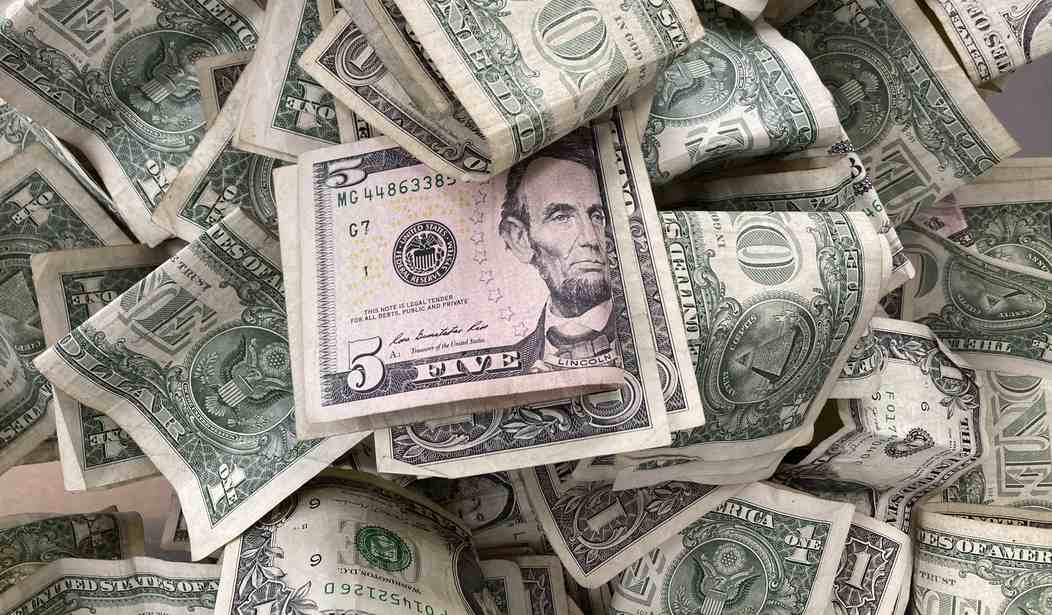As the greatest inflation spike of the last 50 years occurs, the utter failure of economists, their models and many pundits to foresee what was coming is worth highlighting. Of course, the biggest malfunction in the story was that of the Federal Reserve itself, which had a clear mandate to keep prices stable, and seems surprised by their lack of stability.
It's no understatement to say that the Fed failed to properly anticipate the inflation surge. On Feb. 8, 2021, Raphael Bostic, the president of the Atlanta branch of the Fed, said, "I'm really not expecting us to see a spike in inflation that is very robust in the next 12 months or so." A few days later, Boston Fed President Eric Rosengren echoed this sentiment, noting that he would be "surprised" to see broad-based inflation sustained at a level of 2% before the end of 2022.
As the saying goes, problems often start at the top. When testifying before the House Financial Services Committee in February 2021, Fed Chair Jerome Powell predicted that it might take more than three years to hit the 2% inflation goal.
Around the summer of 2021, inflation became hard to ignore. Yet, Fed officials insisted that it wasn't yet time to roll back their temporary policies because they weren't responsible for the rise in prices. The main villain was identified as supply-chain restraints. Once resolved, we were told, inflation would prove to be transitory. Testifying in June of last year before a House subcommittee, Powell said:
"If you look ... at the categories where these prices are really going up, you'll see that it tends to be areas that are directly affected by the reopening. That's something that we'll go through over a period ... then be over. And it should not leave much of a mark on the ongoing inflation process."
During a speech in Jackson Hole, Wyoming, last August, Powell again echoed this sentiment. He also noted that "Longer-term inflation expectations have moved much less than actual inflation or near-term expectations, suggesting that households, businesses, and market participants also believe that current high inflation readings are likely to prove transitory."
Recommended
But as Hoover Institution economist John Cochrane has been reminding us all along, long-term inflation expectations are notoriously poor predictors of inflation. Sadly, few listened, and team "transitory" was born.
I thought this was a useless label since inflation was always going to be transitory. Even the inflation of the 1970s ended in the '80s. What mattered is whether transitory inflation meant a few weeks, months or years. Inflation continued to rise, and the meaning of transitory continued to shift so much so that Powell officially retired the word on Nov. 30. By then, inflation had reached a staggering 6.8%.
Many non-Fed officials made their own bad predictions based on sophisticated forecasting models and/or expectations -- the same expectations Cochrane urged us not to be too complacent about. Theories for why we shouldn't worry abounded. It was caused by a base-effect price increase, supply-chain restraints, a drought in Taiwan -- everything but the Fed's expansionary policies and Congress' overspending, in part because some of these experts had cheered for these actions all along.
Undeterred, some of the same people continue to make predictions that inflation will decline during the second half of 2022. Perhaps. I don't make predictions. However, I know that the amount of money printed, borrowed and spent during the last few years led to a one-time price level rise, and we may have a way to go until we are done. Yes, inflationary pressures like government cash and supply constraints will ease, but that may not be enough without vigorous monetary and fiscal restraints. And until now, the Fed has been dragging its feet to act.
A few economists did get it right. One is former Treasury Secretary Larry Summers, who warned a year ago that President Joe Biden's American Rescue Plan could "set off inflationary pressures of a kind we have not seen in a generation." A day later, former International Monetary Fund Chief Economist Olivier Blanchard tweeted: "I agree with Summers. The 1.9 trillion program could overheat the economy so badly as to be counterproductive."
There were others, too. They were mocked and the legislation passed.
Everyone makes mistakes. The important lesson here is that we should all be humbler. Maybe it's time to think more and model less.
























Join the conversation as a VIP Member